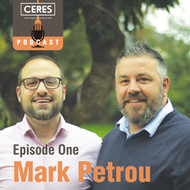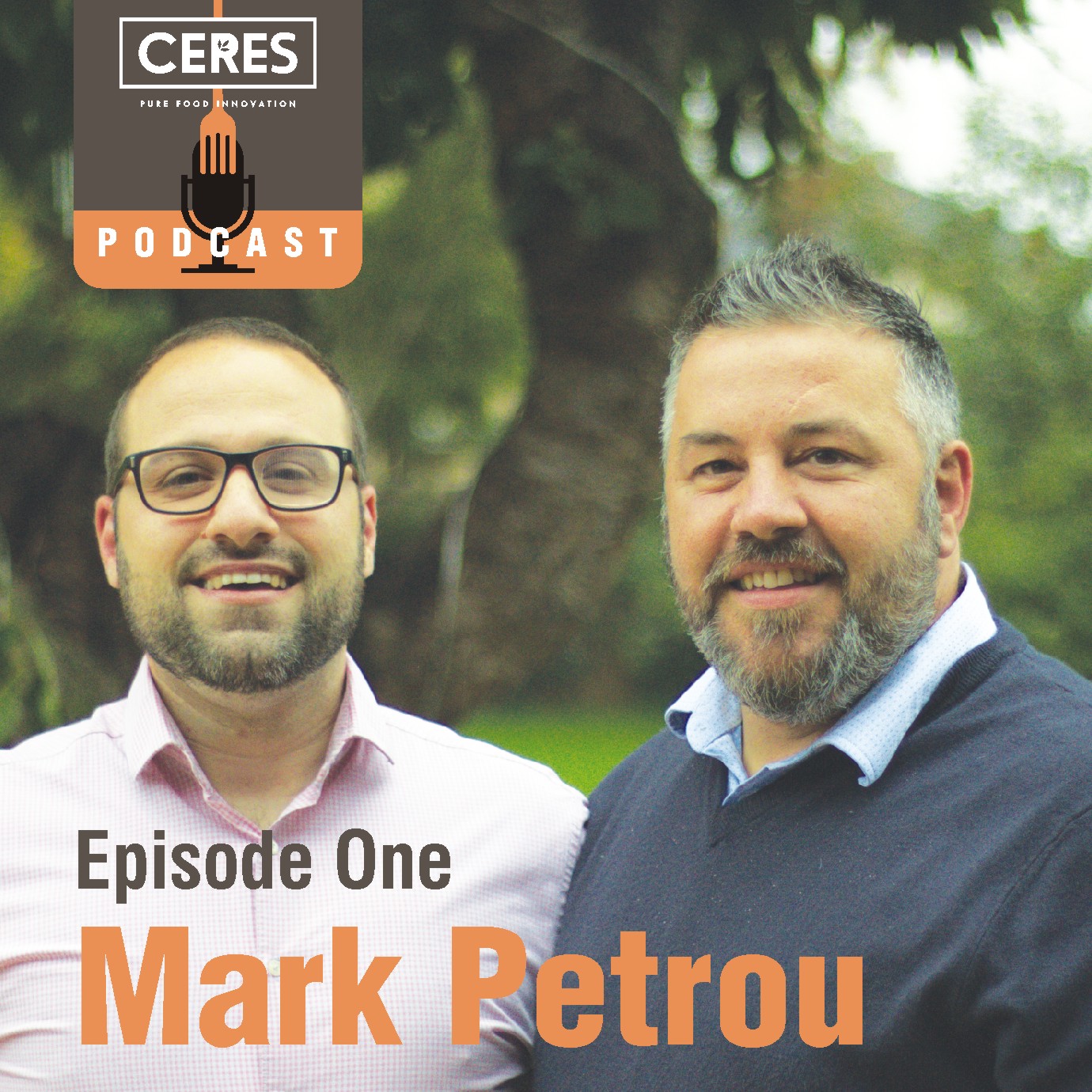Episode 1: Making his Mark
Posted by Emma on 30th Nov 2018 Reading Time:
Many of you probably already know Mark Petrou from one of his many guises: co-owner of Petrou Brothers in Chatteris, Cambridge; founder of Chippy Chat magazine and its online forum, the latter of which had 7,000 members in its heyday (and this was before social media came about remember), winner of 2006 Fish & Chip Shop of the Year Award, an executive councillor for the NFFF, or guest frier at the KFE School of Frying Excellent, this list goes on.
You’ll also know of his passion for bringing the industry together, his outspoken views on many a subject and his desire to share his expertise. But what many of you might not be aware of is how close Mark came to losing everything when the credit crunch hit in 2008 - by which time he’d built up quite a portfolio of businesses that included six fish and chip shops as well as several houses and even a cinema. Although it’s not a time he likes to hark back to, it taught him some valuable lessons and gave him a fresh perspective on his business.
“I was haemorrhaging probably about five or six thousand pounds a week,” Mark recalls.
“For many years, I was just a really passionate cook whose by-product from doing what I did well was lots of money and I didn’t really care about the finances. And then, after you go through an event like that where your cash flow gets choked and you’re geared up heavily with borrowings to keep growing your business, you come out the other side of that and you’re a businessman.
“Nowadays, I’m using my own money. I don’t use bank money anymore. I kept selling stuff until I paid everything off. And I just use my own money and I look at numbers more, so much more.”
With all that in the past, Mark now looks to the future. A future he thinks is bright for the fish and chip shop sector, despite intense competition.
He explains: “The mandate for fish and chips has always been, and I’ve said it many, many times, is affordable food for the masses, and as soon as you take fish and chips away from that environment, it loses something. You can go to a Michelin starred restaurant and have some good fish and chips. You can go to a pub and have good fish and chips. You can go to loads of places for fish chips. But fish and chips belong in a chippy. It’s the fact that you’re having something that’s made for your community no matter where you are in this country. Each site, it has a menu and an incarnation of the product that is tailored to its community. They wouldn’t survive if they weren’t. And for me, it’s a celebration of differences. And that’s what I love about going into a fish and chip shop.”
With the explosion of online ordering, Mark predicts a surge in purpose-built kitchens, without counters and tills, positioned away from the high street. “I don’t have a crystal ball and I’ve got predictions wrong in the past,” Mark comments, “but I’m already seeing evidence of that in other sectors. So there’s no reason why that couldn’t happen for fish and chips. What I will say is that there’s always going to be a place in the high street for a fish and chip shop or in a community area for fish and chips. I think that the game essentially, the way fish and chip is sold and the way that it’s purchased, is more likely to change. The food itself, it doesn’t need fixing.”
And he believes those shops that are slow to jump on what he calls “the technology bus” could potentially lose out. “If you’re serious about being in business and growing your business and evolving your business, then you need to be serious about how people are choosing to order their food these days.
“Things move on. It’s called progress. You either get on that technology bus and go with it or you stand and wave off. But if you stand and wave off, some of your customers could be on that bus.”
He believes shops shouldn’t be asking themselves can they afford to do it, but instead can they afford not to because, ultimately, the shops that evolve will be the ones that succeed, whether they are serving a quality product or not. “I’ve seen shops with an inferior product that are busier than shops with a great product simply because they’re engaging with their customers,” he says.
Having said the future is bright, Mark is well aware that some shops will suffer along the way, predicting a much-needed cull. “I think if we were to go down from 10,000 shops to 7,000, as long as we lose the crap ones, that’s only going to be good because fish and chips are always going to have this place in the heart of the nation.
If there’s one parting piece of advice Mark would like to share, it’s for friers to pick up a copy of a book by Michael LeBoeuf called ‘How to Make A Lot More Business and a Lot Less Time. The Ten Commandments of Speed’. Applying all ten suggestions, Mark’s business is now much more organised, efficient, profitable and productive. He comments: “One of those Ten Commandments is the idea that the phrase “time is money” is redundant. The new phrase is speed is profit and the quicker you can do something, the more profitable you’ll be.”
But Mark isn’t quite finished there. Having won Fish & Chip Shop of the Year over 12 years ago, he wants to do what no one else has done and win it twice.
“I’m going to take one more f**k off shop and then I’m going to win Fish & Chip Shop of the Year again.
“They did say to me, you’re not going to win it twice.
“Give me a couple of years if I could drop a couple of dress sizes and look pretty again it might happen.”
If anyone’s ego is big enough to do it…surely it’s Mark’s!
Of course, Mark had much more to say on many subjects from how he hopes the industry will come together to celebrate 160 years of fish and chips next year, to what he thinks makes the perfect portion. Listen to the full podcast here.


